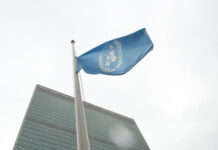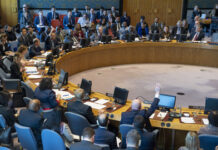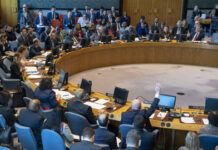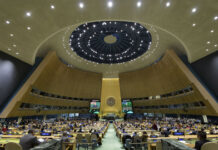Photo Credit: Global Diaspora News (www.GlobalDiasporaNews.com).
Berlin, June 26, 2024 – The Committee to Protect Journalists (CPJ) strongly condemns the Russian foreign ministry’s Tuesday decision to block access to 81 European media outlets in Russia in response to the EU’s recent ban on four pro-Kremlin media outlets.
“Russian authorities’ blocking of 81 European media outlets betrays their deep-seated fear of truthful reporting,” said Gulnoza Said, CPJ’s Europe and Central Asia program coordinator, in New York. “Moscow must immediately stop restricting Russians’ access to information and cease its attempts to stifle the flow of news that deviates from the official line.”
The Russian Ministry of Foreign Affairs’ statement included 81 media outlets from 25 of the 27 EU member countries, excluding Croatia and Luxembourg,U.S. Congress-funded Radio Free Europe/Radio Liberty (RFE/RL) reported. Among those listed were television and radio companies, newspapers, magazines, and online media including Germany’s Der Spiegel and Frankfurter Allgemeine Zeitung, France’s Le Monde and Libération, Spain’s El País, Italy’s La Stampa and La Repubblica, the Agence France-Presse news agency, Politico and several other media outlets.
“The Russian Federation has repeatedly warned at various levels that politically motivated harassment of domestic journalists and unjustified bans on Russian media in the EU will not go unanswered,” the foreign ministry’s June 25 statement said, adding that the targeted media were spreading “false information” about Russia’s war in Ukraine.
On May 17, the European Union announced it would suspend the “broadcasting activities” of the state-run RIA Novosti news agency, the pro-government newspapers Izvestia and Rossiyskaya Gazeta, and the Prague-based news website Voice of Europe, saying that those outlets were “under the permanent direct or indirect control of the leadership of the Russian Federation, and have been essential and instrumental in bringing forward and supporting Russia’s war of aggression against Ukraine.” The decision went into effect on June 25.
After Russia’s 2022 full-scale invasion of Ukraine, the EU banned Russian state-controlled media outlets Russia Today (RT) and Sputnik on similar grounds and Russian authorities have forced a number of foreign journalists to leave the country either by revoking their accreditation or refusing to renew their visas.
On June 26, Russia’s foreign ministry responded to Austria’s recent decision to revoke the accreditation of Arina Davidyan, the Vienna-based head of the Russian state news agency TASS, by ordering Carola Schneider, head of the Moscow bureau of Austrian public broadcaster ORF, to “hand over her accreditation” and leave Russia “in the near future.”
CPJ emailed the Russian Foreign Ministry for comment on the media bans, but did not receive any response.
Source of original article: Europe & Central Asia Archives – Committee to Protect Journalists (cpj.org).
The content of this article does not necessarily reflect the views or opinion of Global Diaspora News (www.GlobalDiasporaNews.com).
To submit your press release: (https://www.GlobalDiasporaNews.com/pr).
To advertise on Global Diaspora News: (www.GlobalDiasporaNews.com/ads).
Sign up to Global Diaspora News newsletter (https://www.GlobalDiasporaNews.com/newsletter/) to start receiving updates and opportunities directly in your email inbox for free.


































